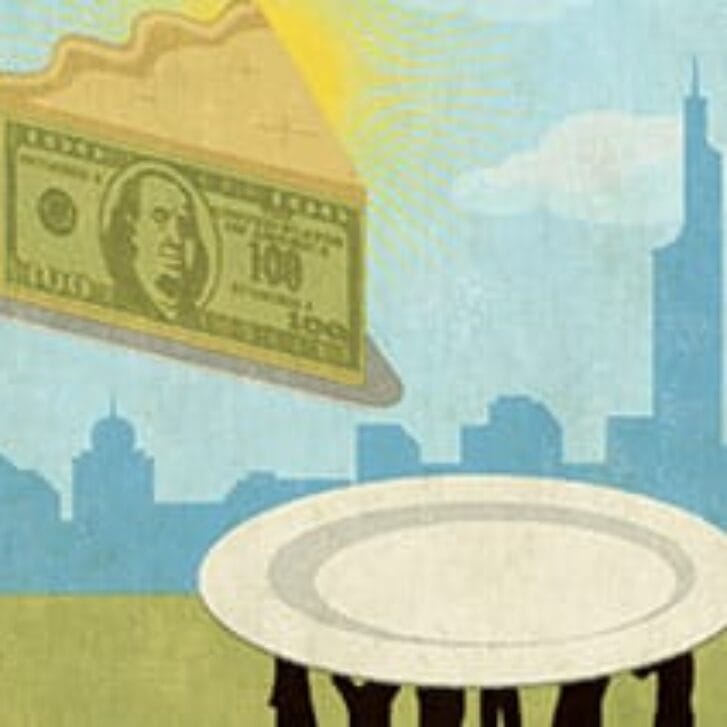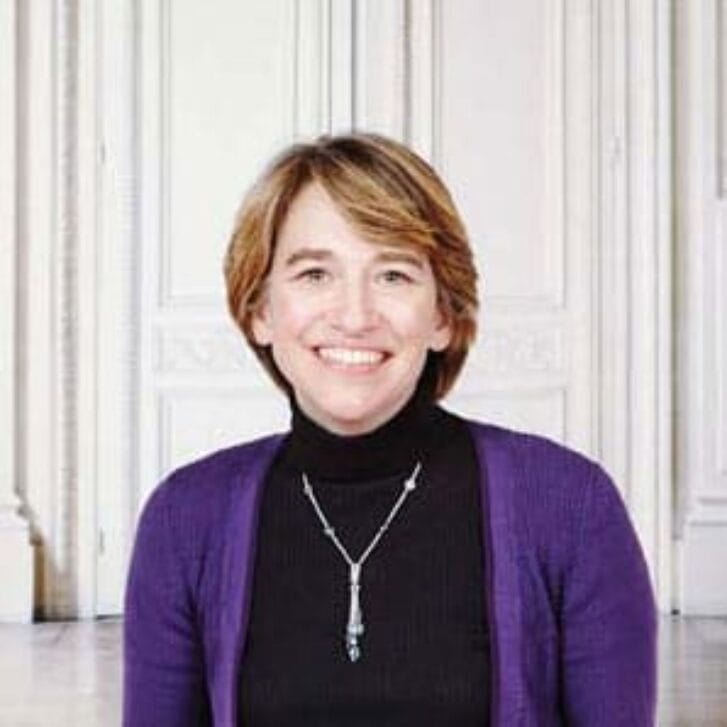Grace Vandecruze WG94 remembers being raised in a home that struggled to make ends meet. Immigrants from Guyana in South America, Vandecruze and her family — including her six siblings — lived in modest accommodations in New York. “We had a house that had more love in it than food,” she says, recalling the many jobs her parents took to provide for them.
Those early days have inspired later parts of Vandecruze’s story. Today, she has advised clients on more than $25 billion of transactions as the founder and managing director of Grace Global Capital LLC, a financial consulting firm for mergers and acquisitions in the insurance industry. Beyond that, Vandecruze is an author and a motivational speaker who advocates for the power of financial literacy. The MBA graduate, whose Wharton education was critical to her successes, also thanks the School for an important part of her personal life: “It’s where I met my husband, Marcus Smith [WG94].”
Wharton Magazine connected with Vandecruze during Financial Wellness Month to discuss the importance of establishing secure financial futures, what scaling more than two dozen mountains with fellow alumni has taught her about leadership, and more.
Wharton Magazine: What initially sparked your interest in championing financial wellness?
Grace Vandecruze WG94: When I was in college, I went home one beautiful June day to find my family’s brownstone in Brooklyn up in flames. We were just getting started, and my parents had no safety net — no insurance or savings. What was the American dream became the American nightmare that day. My family headed to a homeless shelter as the only place where we could stay together. That was one of the most pivotal days in my life. When I work with clients, I tell them that I’m not just an advisor on mergers and acquisitions, but that I’m a fierce advocate for insurance, for financial security, and for families staying together, healthy, and safe.
WM: What’s one thing everyone should do before the end of this month to stay on top of their financial goals this year?
GV: Create a budget. It sounds simple, but many of us don’t have a budget. The apps on our smartphones are powerful tools for financial wellness and empowerment. They can help us see our financial position in a snapshot in the same way we can see our physical goals when we step on a scale or look in the mirror. For many of us, our financial snapshot is spread across several places. It is difficult to be accountable if we don’t have ways to track and measure, so I would start very basic, with a budget and access to a financial snapshot.
WM: Are there any financial wellness apps you recommend?
GV: One that I am very much an advocate for is Acorns. Every time we use a credit card, it rounds up and puts that rounded amount directly into an investment account. In addition, it allows you to save a predetermined amount every month. Over time, it accumulates in a way that’s disciplined, systematic, and compounded by growth.
WM: What’s a financial wellness tip you wish you’d known earlier in life?
GV: We are likely to outlive our parents, and our biggest risk is that we will outlive our savings. Medical expenses accumulate rapidly. They put more Americans in bankruptcy than any other risk. One of the best tips I can give is to get long-term care insurance.
WM: I also want to talk a bit about your mountain-climbing experiences, which have included treks on Mount Everest and Mount Kilimanjaro. What skills from those treks have you carried into your career?
GV: Mountain climbing mirrors life more than anything I’ve ever done. Experienced mountaineers know that you have to be prepared to be disrupted at every step. That’s taught me that you really can’t be successful unless you focus on each and every step. Make the next step the very best one. That’s taking from the guides in Kilimanjaro. In Swahili, they call it pole pole, or step by step.
I’ve also learned that even as you’re stepping, there could be various conditions that change, and you end up having to pivot along the way. And then there’s the importance of teams. You’re roped into the people ahead of and behind you. And many times, particularly in storms, this tests bonds. I always remember in my career that it matters very much how I approach the journey, because there are people behind me who are going to follow my footsteps.
WM: Do you remember how you felt when you were considering going on your initial climb?
GV: I received an invitation from Wharton professor Michael Useem. When I got it, I was a managing director at Swiss Re. I was the first African American woman to be promoted to that position. It was the dream I had always aspired to. But when you’re there, it’s never the same as what you envisioned. One thing I felt at that moment was fairly isolated.
There were so many aspects of the invitation that intrigued me. One was that I would be going to Bhutan and learning more about the only Buddhist kingdom in the world. We would also be climbing during the day and having discussions on relevant business issues at night. Most importantly, I would have an opportunity to climb with fellow alums from various countries and continents. That trip sparked a relationship among many of the mountaineers, and we’ve ended up going on several other expeditions together. I’m so glad I said yes, because it started me on a journey that has been the most rewarding of my life.
WM: What was the biggest challenge you faced last year, and how did you overcome it?
GV: One of the biggest challenges I faced is actually very personal. My mother, who is 87 years old, went into hospice care. I’m her chief caregiver. It is a journey supporting the tower of strength in my life as she deals with advanced stages of dementia. I am proud that in every step of my own journey, she has paved the way for me in some shape or form.
Looking to the year ahead, I am learning the power of rest and reset in a way I’ve not before. I am best when I am present, rested, healed, and holistically satisfied.


























